|
Books Should Be Free Loyal Books Free Public Domain Audiobooks & eBook Downloads |
|
|
Books Should Be Free Loyal Books Free Public Domain Audiobooks & eBook Downloads |
|
Non-fiction |
|---|
|
Book type:
Sort by:
View by:
|
By: Marcus Tullius Cicero (106-43 BC) | |
|---|---|
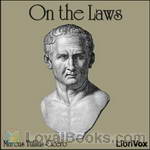 On the Laws
On the Laws
De Legibus (On the Laws) is a philosophical dialogue between: Cicero's friend Titus Pomponius Atticus; Cicero's brother Quintus; and Cicero himself. The dialogue is written in the style of Plato who was greatly revered by Cicero. De Legibus forms a continuation of Cicero's own work De re Publica (On the Commonwealth or On the Republic) and is also a response to Plato's work Νόμοι (Laws). It is unknown how many books the work originally contained but several complete books have been lost. Cicero's... | |
By: Stephen Leacock (1869-1944) | |
|---|---|
 My Discovery of England
My Discovery of England
"In the course of time a very considerable public feeling was aroused in the United States and Canada over this state of affairs. The lack of reciprocity in it seemed unfair. It was felt (or at least I felt) that the time had come when some one ought to go over and take some impressions off England. The choice of such a person (my choice) fell upon myself. By an arrangement with the Geographical Society of America, acting in conjunction with the Royal Geographical Society of England (to both of whom I communicated my proposal), I went at my own expense."And from thence follow the impressions of Canadian political economist and humourist, Stephen Leacock, after a lecturing visit to England. | |
By: Anonymous | |
|---|---|
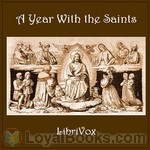 A Year With the Saints
A Year With the Saints
Go through the year in the footsteps of the saints. This book emphasizes one virtue for each month with quotes and stories from the lives of the saints to help teach and inspire that particular virtue in us.For January, Perfection; February, Humility; March, Mortification; April, Patience; May, Meekness; June, Obedience; July, Simplicity; August, Diligence; September, Prayer; October, Confidence; November, Charity; and December, Union. | |
By: Pauline von Hugel (1858-1901) | |
|---|---|
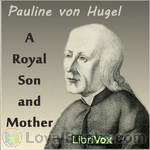 A Royal Son and Mother
A Royal Son and Mother
Demetrius Augustine Gallitzin (1770-1840) was an emigre Russian aristocrat and Catholic priest who is acclaimed as "The Apostle of the Alleghenies." He is the son of Prince Dimitri Alexeievich, a Russian ambassador to the Netherlands, and the German Countess Adelheid Amalie von Schmettau. Demetrius was raised Russian Orthodox, but at age seventeen he converted to Catholicism, the faith of his mother, following her miraculous recovery from a serious illness. Although the ambassador had planned a military career for his son and had sent him to America for an education, he was shocked to learn that his son had renounced his inheritance and had entered a seminary instead... | |
By: John Lloyd Stephens (1805-1852) | |
|---|---|
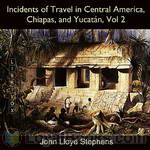 Incidents of Travel in Central America, Chiapas, and Yucatán, Vol. 2
Incidents of Travel in Central America, Chiapas, and Yucatán, Vol. 2
The year is 1838. The scene is the dense Honduran forest along the Copán River. Two men, John Lloyd Stephens and Frederick Catherwood, are about to rediscover Mayan civilization. Their guide, slashing through the rampant growth with his machete, leads them to a stone column, fourteen feet high, sculptured on the front with a portrait of a man, “solemn, stern and well fitted to excite terror,” covered on the sides with hieroglyphics, and with workmanship “equal to the finest monuments of the Egyptians... | |
By: Robert Hugh Benson (1871-1914) | |
|---|---|
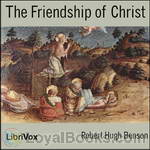 The Friendship of Christ
The Friendship of Christ
Robert Hugh Benson, who was educated at Eton College and Trinity College, Cambridge, was ordained an Anglican priest in 1895 by his father, the Archbishop of Canterbury. Eight years later, after weighty consideration, Robert Benson converted to Roman Catholicism. In 1904 he was ordained a Roman Catholic priest and took up residence in Cambridge, where he ministered to Roman Catholic students as their unofficial chaplain. In 1911, he was made a monsignor. Despite the brevity of his earthly life, Benson... | |
By: William Alexander MacKay (1842-1905) | |
|---|---|
 Zorra Boys at Home and Abroad, or, How to Succeed
Zorra Boys at Home and Abroad, or, How to Succeed
By Zorra, in the following sketches, is meant a little district in Oxford county, Ontario, some ten miles square, composed of part of East and part of West Zorra, and containing a population of about fourteen hundred. It was settled about the year 1830, chiefly by Highlanders from Sutherlandshire, Scotland.Within the last forty years there have gone from this district over one hundred young men who have made their mark in the world. With most of these it has been the writer's good fortune to be personally and intimately acquainted; and companionship with some of them has been to him a pleasure and a benefit... | |
By: Eaton G. Osman (1853-1929) | |
|---|---|
 Starved Rock: A Historical Sketch
Starved Rock: A Historical Sketch
This book is an early history of the Starved Rock Area in Northern Illinois. In the pre-Columbian era, the Starved Rock area was home to Native Americans, particularly the Kaskaskia who lived in the Grand Village of the Illinois across the river. Louis Jolliet and Jacques Marquette were the first Europeans recorded as exploring the region, and by 1683, the French had established Fort St. Louis on a large sandstone butte overlooking the river. According to a native legend, a group of Illinois Confederation (Illini) pursued by the Ottawa and Potawatomi fled to the butte in the late 18th century... | |
By: Plato (Πλάτων) (c. 428 BC - c. 347 BC) | |
|---|---|
 Republic (version 2)
Republic (version 2)
The Republic is a Socratic dialogue written by Plato around 380 BC concerning the definition of justice and the order and character of the just city-state and the just man. It is Plato's best-known work and has proven to be one of the most intellectually and historically influential works of philosophy and political theory. In it, Socrates along with various Athenians and foreigners discuss the meaning of justice and examine whether or not the just man is happier than the unjust man by considering a series of different cities coming into existence "in speech", culminating in a city (Kallipolis) ruled by philosopher-kings; and by examining the nature of existing regimes... | |
By: Louis-Georges Desjardins (1849-1928) | |
|---|---|
 England, Canada and the Great War
England, Canada and the Great War
Mr. Desjardins was driven to write this work to refute statements uttered by the nationalist Henri Bourassa, which the former feared painted all Quebecers with the same unpatriotic brush in respect to their contribution to the Great War. | |
By: Marcus Fabius Quintilianus | |
|---|---|
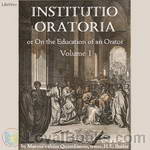 Institutio Oratoria or On the Education of an Orator, volume 1
Institutio Oratoria or On the Education of an Orator, volume 1
Marcus Fabius Quintilianus was of Spanish origin, being born about 35 A.D. at Calagurris. At Rome he met with great success as a teacher and was the first rhetorician to set up a genuine public school and to receive a salary from the State. He left behind him a treatise "On the causes of the decadence of Roman oratory" (De causis corruptae eloquentiae), some speeches and his magnum opus, the only one to survive to our days. His Institutio Oratoria, despite the fact that much of it is highly technical, has still much that is of interest today, even for those who care little for the history of rhetoric. | |
By: Rev. Gerald T. Brennan (1898-1962) | |
|---|---|
 Angel Food Time: Little Talks to Little Folks
Angel Food Time: Little Talks to Little Folks
This is the sixth and final volume of the "Angel Food" Series by Father Brennan. This volume consists of 28 charming selections with titles such as "Six Red Roses", "The Three Little Angels", "A Surprise From Santa Claus" and "The Boy Who Dusted the Devil's Tail". | |
By: John Wycliffe (1328-1384) | |
|---|---|
 Ecclesiastes (Wycliffe, 1395)
Ecclesiastes (Wycliffe, 1395)
“… an alemaunde tre schal floure, a locuste schal be maad fat, and capparis schal be distried; for a man schal go in to the hous of his euerlastyngnesse…” – Eccl. xii, 5 (see Note below).Traditionally composed by Solomon sometime around 950-970 BCE but dated on linguistic evidence somewhere in the third century, this meditation on the futility of mankind’s striving can bring comfort to those of firm or fragile faith, or of no faith at all. The text used here is a revision of Wycliffe’s original translation, made by his follower John Purvey in the mid-1390s... | |
By: United States Senate Committee on Armed Services | |
|---|---|
 Report of the Inquiry into the Role and Oversight of Private Security Contractors in Afghanistan
Report of the Inquiry into the Role and Oversight of Private Security Contractors in Afghanistan
The Inquiry into the Role and Oversight of Private Security Contractors in Afghanistan, which reported in September 2010, was precipitated by events in August 2008, when US forces bombed the Afghan village of Azizabad. This gave rise to a public dispute between the US Government and the United Nations about the level of fatalities caused by the attack and about whether those killed had been civilians or Taliban-linked insurgents. Allegations soon emerged that the attack had been based on false information deliberately fed to the US military by Afghan employees of ArmorGroup, a private security contractor, and that these employees were engaged in murder and anti-coalition activities... | |
By: William Kingdon Clifford | |
|---|---|
 The Ethics of Belief
The Ethics of Belief
This is an essay on decision biases and a critique on prejudices, neatly written and thought provoking. | |
By: Jakob Andreae (1528-90) | |
|---|---|
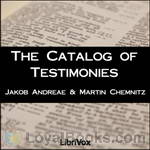 The Catalog of Testimonies
The Catalog of Testimonies
This appendix to the 1580 edition of the Book of Concord is a compilation of Scripture passages together with citations from the fathers of the ancient Christian Church. They are intended to show that the Christology of the Formula of Concord differs neither in substance nor in terminology from Christian Orthodoxy. (Introduction by Jonathan Lange) | |
By: Agnes Repplier (1855-1950) | |
|---|---|
 In Our Convent Days
In Our Convent Days
With her usual wit and charm, Ms. Repplier recalls her days at Eden Hall, the Convent of the Sacred Heart in Torresdale, north of Philadelphia. She shares the highlights (and some of the low lights) of her time there. Perhaps this sharp eye, nurtured by her willfulness and independent spirit, was the reason she was not invited to return to Eden after her second year. Not only Catholics or boarding school alumnae will find this book entertaining; anyone who went to school or who looks back on their childhood will see their own experience somewhere in this memoir. | |
By: Haji A. Browne | |
|---|---|
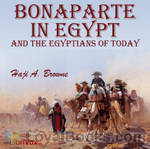 Bonaparte in Egypt and the Egyptians of To-day
Bonaparte in Egypt and the Egyptians of To-day
Knowing the Egyptian as I know him, I cannot but think that he is greatly misunderstood, even by those who are sincerely anxious to befriend him. His faults and his failings are to be found at large in almost any of the scores of books that have of late years been written about him and his country; but, though not a few have given him credit for some of his more salient good points, yet none that I have seen have shown any just appreciation of him as he really is. (From the Preface) | |
By: Imogen Clark | |
|---|---|
 Rhymed Receipts for Any Occasion
Rhymed Receipts for Any Occasion
In addition to being amusing, recipes written in a poetic form were easy to remember and used as learning tools for the young housekeeper. Many of the poems in this 1912 publication were originally published in Woman's Home Companion, Good Housekeeping Magazine, the Housewife, Table Talk, and the Boston Cooking School Magazine. | |
By: Friedrich Bente [translator] (d. 1930) | |
|---|---|
 Book of Concord Preface
Book of Concord Preface
The Christian Book of Concord was published in 1580 as a collection of eleven documents: Three Ecumenical Creeds and eight documents from the Reformation Era. Here is the Preface to the entire work together with the Saxon Visitation Articles from 1592. | |
By: John Charles Van Dyke (1856-1932) | |
|---|---|
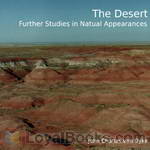 The Desert, Further Studies in Natural Appearances
The Desert, Further Studies in Natural Appearances
The Desert by John Charles Van Dyke, published in 1901, is a lush, poetic description of the natural beauty of the American Southwest. "What land can equal the desert with its wide plains, its grim mountains, and its expanding canopy of sky!" Van Dyke, a cultivated art historian, saw "sublimity" in the desert's "lonely desolation," which previous generations had perceived only as a wasteland, and his book has a conservationist flavor which seems distinctly modern. "The deserts should never be reclaimed," he writes... | |
By: Plato (Πλάτων) (c. 428 BC - c. 347 BC) | |
|---|---|
 Gorgias
Gorgias
This dialogue brings Socrates face to face with the famous sophist Gorgias and his followers. It is a work likely completed around the time of "Republic" and illuminates many of the spiritual ideas of Plato. The spirituality, as Jowett points out in his wonderful introduction, has many ideas akin to Christianity, but is more generous as it reserves damnation only for the tyrants of the world. Some of the truths of Socrates, as presented by Plato, shine forth in this wonderful work on sophistry and other forms of persuasion or cookery. | |
By: Rev. Gerald T. Brennan (1898-1962) | |
|---|---|
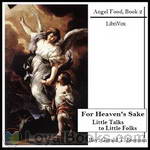 For Heaven's Sake: Little Talks to Little Folks
For Heaven's Sake: Little Talks to Little Folks
This is the second book in the “Angel Food” series by the author. It consists of a series of short sermons for children, in the form of a charming story. The author was a Catholic parish priest in New York for many years during the mid 1900’s. He was the author of several books for children, the most well known being the books in what is considered the “Angel Food” series. | |
By: Eva K. Betz (1897-1968) | |
|---|---|
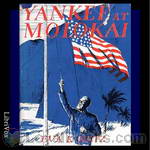 Yankee at Molokai
Yankee at Molokai
As a daring soldier in the Union Army, Ira Dutton earned the respect and affection of the men around him. Handsome and affable, he could have had a full social life when the war was over. But he felt that his "wild years" demanded atonement - and where could that better be found than in Molokai, where the ailing Father Damien needed help?So he made a free gift of himself, his strength and his capacity for love. Deeply patriotic, he cultivated in his charges devotion to America. A vivid exciting story. | |
By: Josiah Priest (1788-1851) | |
|---|---|
 Bible Defence of Slavery
Bible Defence of Slavery
The full title of this book is Bible Defense of Slavery; and Origin, Fortunes, and History of the Negro Race, by Rev. Josiah Priest, A. M. 5th edition. This is a compilation of pro-slavery literature and propaganda that went through numerous editions in the Southern United States before the Civil War. It contains the highly influential book, Slavery, as it Relates to the Negro, or African Race, by Rev Josiah Priest, which was originally published in 1843. This compilation also includes many essays and favorable reviews of Rev Priest’s book from contemporary magazines and newspapers, and written endorsements from national politicians... | |
By: John Clement Reville (1867-?) | |
|---|---|
 The First American Sister of Charity: Elizabeth Bayley Seton
The First American Sister of Charity: Elizabeth Bayley Seton
This is a picturesque and moving account of the life and work of Elizabeth Ann Bayley Seton (1774-1821), the first native-born citizen of the United States to be canonized a saint by the Roman Catholic Church. This widowed mother of five established schools in New York and Maryland and was the first to found a congregation of Religious Sisters in the United States, the Sisters of Charity of St. Joseph, whose motherhouse stands today in Emmitsburg, Maryland. | |
By: Edith Nesbit (1858-1924) | |
|---|---|
 Wings and the Child
Wings and the Child
"When this book first came to my mind it came as a history and theory of the building of Magic Cities on tables, with bricks and toys and little things such as a child may find and use. But as I kept the thought by me it grew and changed, as thoughts will do, until at last it took shape as an attempt to contribute something, however small and unworthy, to the science of building a magic city in the soul of a child, a city built of all things pure and fine and beautiful." -- E. Nesbit"This lovely book describes the practicalities of building cities (or forts, secret bases and fairytale palaces) out of household odds-and-ends... | |
By: Reuben Gold Thwaites (1853-1913) | |
|---|---|
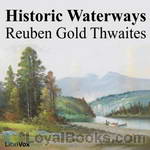 Historic Waterways
Historic Waterways
Historic Waterways, Six Hundred Miles of Canoeing down the Rock, Fox and Wisconsin Rivers.This volume is the record of six hundred miles of canoeing experiences on historic waterways in Wisconsin and Illinois during the summer of 1887. There has been no attempt at exaggeration, to color its homely incidents, or to picture charms where none exist. It is intended to be a simple, truthful narrative of what was seen and done upon a series of novel outings through the heart of the Northwest. If it may induce others to undertake similar excursions, and thus increase the little navy of healthy and self-satisfied canoeists, the object of the publication will have been attained. | |
By: Ferreol Girardey (1839-1930) | |
|---|---|
 Prayer: Its Necessity, Its Power, Its Conditions
Prayer: Its Necessity, Its Power, Its Conditions
Redemptorist Father Ferreol Girardey's book, which bears an imprimatur, is a broad introductory treatise on the subject of prayer. He discusses the power and necessity of prayer, explains why some prayers do not seem to be answered, and tells us how to make our prayers more acceptable to God. In particular, he instructs the reader on what to pray for and for whom to pray. He also details the conditions necessary for efficacious prayer and explains the times when it is most suitable to pray. Father Girardey includes numerous lessons from the gospel on prayer and offers selections from Meditations for Every Day of the Year by Redemptorist Father Louis Bronchain. | |
By: Queensland Railways | |
|---|---|
 Tours in the South Coast District
Tours in the South Coast District
An early booklet, designed to encourage tourism in the northern parts of New South Wales, and the southern parts of Queensland, particularly the area now in the Gold Coast.(Introduction by Timothy Ferguson) | |
By: Martin Luther (1483-1546) | |
|---|---|
 Concerning Christian Liberty
Concerning Christian Liberty
Early in the course of the Reformation (1520) Martin Luther penned a trilogy of foundational documents addressing the Church, the Nobility and the Christian life. This document concerning the Christian life expounds the famous paradox: "A Christian man is the most free lord of all, and subject to none; a Christian man is the most dutiful servant of all, and subject to every one." | |
By: Thomas Heyden (1798-1870) | |
|---|---|
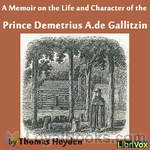 A Memoir on the Life and Character of the Rev. Prince Demetrius A. de Gallitzin
A Memoir on the Life and Character of the Rev. Prince Demetrius A. de Gallitzin
Prince Demetrius of Gallitzin (1770-1840), or "Father Smith," as he was known on the eighteenth century American frontier, was one of the glories of early Catholicism in America. Though a prince by birth, Demetrius discreetly concealed the glory of his earlier life that he might better lead his adopted spiritual children to the glory of eternal life. For more than four decades, he humbly provided for the spiritual needs of courageous pioneers scattered throughout the Allegheny Mountains of central Pennsylvania... | |
By: John D. Rockefeller (1839-1937) | |
|---|---|
 Random Reminiscences of Men and Events
Random Reminiscences of Men and Events
A good book by the oil revolutionist of the 20th century. As they say "Men should listen to experience" and this book is all about the experience of the second highest taxpayer of the US during the 20's. Though it is not in the book, this is a small poem he wrote:I was early taught to work as well as play,My life has been one long, happy holiday;Full of work and full of play-I dropped the worry on the way- And God was good to me everyday. | |
By: Gertrude Jekyll (1843-1932) | |
|---|---|
 Wood and Garden
Wood and Garden
Wood and Garden reads like a walk through the garden with reknowned garden designer Gertrude Jekyll as she discusses her plant choices and placement, how she integrates nature into her design, and how she maintains and enjoys the garden. | |
By: Henry Edward Manning (1808-1892) | |
|---|---|
 The Love of Jesus to Penitents
The Love of Jesus to Penitents
Henry Edward Manning (1808-1892) was an Oxford-educated Anglican clergyman who converted to Roman Catholicism after the Privy Council ordered the Church of England in 1850 to reinstate an heretical vicar. Manning was ordained a priest in the Roman Catholic Church in 1851, appointed archbishop of Westminster in 1865, and made a cardinal in 1875 by Pope Pius IX.In The Love of Jesus to Penitents, Manning enumerates the many benefits that the Sacrament of Penance affords the penitent: it reveals to the... | |
By: Eva K. Betz (1897-1968) | |
|---|---|
 The Quiet Flame
The Quiet Flame
“You will never be a leper nor will any Sister of our Order.”The amazing promise was made by Mother Marianne of Molokai, the “Quiet Flame” of the this title who, as a Sister of St. Francis , spent 30 years on that island helping lepers during and after the time of Father Damien.Mother was speaking to a young nun, and she spoke the truth. Not one of the Sisters ever did contract the disease, a notable fact considering the tender care they fostered on the lepers.This story of this good nun, was written by the author of a number of Catholic biographies and fiction books for children. | |
By: יוסף חיים ברנר Yosef Haim Brenner (1881-1921) | |
|---|---|
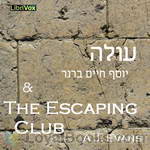 עולה (Injustice), with excerpt from The Escaping Club
עולה (Injustice), with excerpt from The Escaping Club
This is a bilingual project. The first part, in Hebrew, is the story "Injustice" by Yosef Haim Brenner, written following the conquest of Palestine by the British troops during WWI. The story takes place on the Turkish side of the dividing line between the combating forces. An escaped British prisoner of war had taken shelter among a group of Jewish workers, who, following a heated discussion, turned him over to the Turkish army. The second part of this project, in English, is a chapter in the book "The Escaping Club," written in 1922 by the same British prisoner of war, the aviator A. J. Evans, who gave his account of the same event. | |
By: Moncure D. Conway (1832-1907) | |
|---|---|
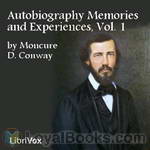 Autobiography Memories and Experiences, Volume 1
Autobiography Memories and Experiences, Volume 1
Moncure Daniel Conway was an American abolitionist, Unitarian, clergyman and author. This first volume of his autobiography covers roughly the years of his birth through the end of the US Civil War. | |
By: William Morris (1834-1896) | |
|---|---|
 Signs of Change
Signs of Change
In the 1880s William Morris, the artist and poet famously associated with the Arts and Crafts movement, left the Liberal Party and threw himself into the Socialist cause. He spoke all over the country, on street corners as well as in working men's clubs and lecture halls, and edited and wrote for the Socialist League's monthly newspaper. Signs of Change is a short collection of his talks and writings in this period, first published in 1888, covering such topics as what socialism and work should be, and how capitalism and waste developed. | |
By: William Bernard Ullathorne (1806-1889) | |
|---|---|
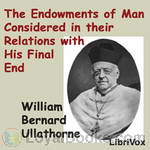 The Endowments of Man Considered in Their Relations with His Final End
The Endowments of Man Considered in Their Relations with His Final End
William Bernard Ullathorne was a Benedictine monk and Roman Catholic priest who ministered in Australia from 1833 until 1840 and then returned to his native England, where he was ordained a bishop in 1847 and served as Roman Catholic Bishop of Birmingham from 1850 until 1888. He is best known for his catechetical trilogy: The Endowments of Man, The Groundwork of the Christian Virtues, and Christian Patience, published in the 1880s. The Endowments of Man is presented in fourteen lectures, adapted from lectures originally delivered to clerics in Olton, England, at St... | |
By: Rev. Gerald T. Brennan (1898-1962) | |
|---|---|
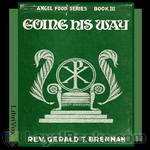 Going His Way: Little Talks to Little Folks
Going His Way: Little Talks to Little Folks
Sermons for children‚ why not? After all, children form a very important part of every congregation. They have souls, and their souls must be saved. Children must be taught; they must be instructed. They must learn to know, love, and serve God. This is the third book in the "Angel Food" series. (Angel Food, For Heaven's Sake, Going His Way) (From the Foreword by Fr. Brennan and Maria Therese) | |
By: Cyril of Alexandria (376-444) | |
|---|---|
 That Christ Is One
That Christ Is One
Cyril of Alexandria was the leading voice of Nicene orthodoxy in the Christological controversies between Constantinople (381) and Chalcedon (451). Assuming the mantle of the Cappadotian fathers, he answered the auguments of Nestorius who had changed the liturgy of Constantinople by altering the prayer which referred to Mary as the Mother of God. Although he died seven years before the Council of Chalcedon, his writings and formulations heavily influenced not only Chalcedon, but the entire trajectory of orthodox christological thought. | |
By: Mary Roberts Rinehart (1876-1958) | |
|---|---|
 Through Glacier Park
Through Glacier Park
This is about a three-hundred mile trip across the Rocky Mountains on horseback with Howard Eaton. It is about fishing, and cool nights around a camp-fire, and long days on the trail. It is about a party of all sorts, from everywhere, of men and women, old and young, experienced folk and novices, who had yielded to a desire to belong to the sportsmen of the road. And it is by way of being advice also. Your true convert must always preach. (Introduction by Mary Roberts Rinehart quoted from the text.) | |
By: Sir Frank Fox (1874-1960) | |
|---|---|
 England
England
What is this strange land called England; so small in size yet so powerful in influence? What makes her so unique, talented and persistent? This book attempts to answer that. It is a short, well written explanation of England as a unique country written by someone who loved it deeply and yet, as an Australian, could be a bit impartial. In the first part he explains the 'making' of England; the Britons and the Romans, the Anglo-Saxons and the Normands. But from there he attempts to give an essence or flavor, delving into the work, the play, the schools, the churches and especially the landscape which make it special... | |
By: Jessie Benton Frémont | |
|---|---|
 The Will and the Way Stories
The Will and the Way Stories
Simply put, this is a book of 9 short vignettes each of which describes a different scenario which demonstrates the age old adage: 'where there's a will, there's a way'. | |
By: Rev. Gerald T. Brennan (1898-1962) | |
|---|---|
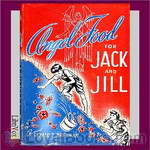 Angel Food For Jack and Jill: Little Talks to Little Folks
Angel Food For Jack and Jill: Little Talks to Little Folks
This is book five of the “Angel Food” series by the author. It consists of a series of 28 short sermons for children, in the form of a charming story. The author was a Catholic parish priest in New York for many years during the mid 1900’s. He was the author of several books for children, the most well known being the books in what is considered the “Angel Food” series. | |
By: Henry Van Dyke (1852-1933) | |
|---|---|
 The Valley of Vision
The Valley of Vision
”Why do you choose such a title as The Valley of Vision for your book” said my friend; “do you mean that one can see farther from the valley than from the mountain-top?” This question set me thinking, as every honest question ought to do. Here is the result of my thoughts, which you will take for what it is worth, if you care to read the book. The mountain-top is the place of outlook over the earth and the sea. But it is in the valley of suffering, endurance, and self-sacrifice that the deepest visions of the meaning of life come to us. | |
By: Jean Guibert (1857-1914) | |
|---|---|
 On Piety
On Piety
Father Jean Guibert of the Society of St. Sulpice served as superior of the Catholic Institute of Paris. He wrote this short book, which bears an imprimatur, for both those who practice piety and those who disdain it. As noted in the preface to this book, the practice of piety has many advantages. The pious person is drawn into closer contact with God, his heart is purified and made glad, his mind is enlightened, his will is strengthened, and his zeal to love God and neighbor is enkindled. In Part I (Chapters 1-11), Father Guibert discusses the nature of piety, and in Part II (Chapters 12-18), he enumerates its fruits... | |
By: George Dewey (1837-1917) | |
|---|---|
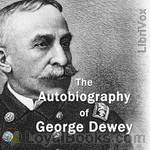 The Autobiography of George Dewey
The Autobiography of George Dewey
Admiral George Dewey, United States Navy, is best remembered for his victory over the Spanish fleet at the Battle of Manila Bay during the Spanish-American War (1898). Written when Dewey was seventy-five years old and had served fifty-nine years in the navy, this book offers not only an excellent account of the famous naval battle in the Philippines, but also stories of the author’s many adventures during his long sea-going career, including some hair-raising experiences during the Civil War. | |
By: Selina Gaye (1840-1914) | |
|---|---|
 The World's Lumber Room
The World's Lumber Room
If this book were written today, it would be called "The Story of the World's Rubbish".That may not sound a promising subject for a book, but we are taken on a journey all over the world (and beyond) to explain the many varieties of dust and refuse - animal, vegetable and mineral - how it is made both by man and by nature, what happens to it, and why we need it. We find that recycling is nothing new: man has been doing it for centuries, and nature has been doing it for billions of years. As every schoolboy knows, 'matter is neither created nor destroyed', so it stands to reason that every particle of it must be somewhere... | |
By: Unknown | |
|---|---|
 365 Foreign Dishes
365 Foreign Dishes
Starters, main courses and desserts from around the world, one dish for every day of the year. From Turkey to China, from India to England, from Austria to Egypt, a wide variety of mouth-watering cuisines are represented. Each recipe is described in one short paragraph, making this book perfect for dipping into when you’re seeking inspiration on what to cook. | |
By: Pearl White (1889-1938) | |
|---|---|
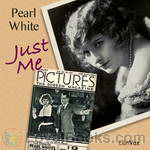 Just Me
Just Me
Perhaps the first memoir written by a film celebrity, Pearl White's Just Me gives a first-person account of the actress' rise to stardom. White guides us through her early childhood, her development as a performer, and finally to her breakout role in The Perils of Pauline--a role that made her the most popular "serial queen" of early cinema. Although romanticized and somewhat embellished, this book gives us a fascinating glimpse into the film industry's earliest years and the various myths of film stardom. | |
By: Rev. Thomas J. Hosty (1910-2004) | |
|---|---|
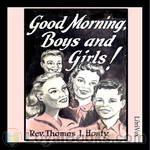 Good Morning, Boys and Girls!
Good Morning, Boys and Girls!
Forty simple, delightful sermons for children. The stories cover a full school year, all Sundays and a few holydays in between. Under such engaging chapter titles, as Chasing Rainbows, Caterpillars, The Best Christmas Gift, and Breakfast of Champions, the book entertains while it instructs. Here Heaven takes on a new closeness as “God’s Home”; the Bible is a collection of “Letters from God”; while the devil is called “a Real Bogeyman.” Such important subjects as beauty of soul, gratitude, Sunday Mass, the foolishness of sin, the Rosary, and temptation are dealt with in a refreshing manner guaranteed to capture the interest of every child. | |
By: Jewish Publication Society of America | |
|---|---|
 Exodus (JPSA)
Exodus (JPSA)
The second book of the Pentateuch - Exodus. Presented according to weekly parshah.Praised are You, Adonai, Our G-d, ruler of the Universe, who has made us holy with commandments and commanded us to engage in the study of Torah. (Introduction by Linette Geisel & traditional prayer. Parshat descriptions provided by Wikipedia) | |
By: Father Benoit Valuy (1808-1869) | |
|---|---|
 Fraternal Charity
Fraternal Charity
This short treatise comes from a work by the Roman Catholic priest Father Valuy, S.J., and bears an imprimatur. It was written for members of religious orders; yet, as the translator notes, it may be of interest to others, for "love, the sunshine of existence, is wanted everywhere." The first five chapters cover the fundamentals of fraternal charity. Chapters 6 through 17 discuss twelve characteristics of fraternal charity. Chapters 18 and 19 show how God manifests the virtue of charity to us most perfectly... | |
By: Francis Archibald Bruton (1860-1929) | |
|---|---|
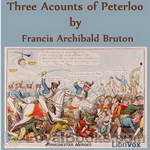 Three Accounts of Peterloo
Three Accounts of Peterloo
A companion volume to F.A. Bruton's 'The Story of Peterloo', the full title of this short collection is 'Three Accounts of Peterloo by Eyewitnesses, Bishop Stanley, Lord Hylton, John Benjamin Smith with Bishop Stanley's Evidence at the Trial'. The three contemporary accounts, each with a short introduction by the editor, give different perspectives on the events of 16 August 1819, when a troop of Hussars accompanied by the local Yeomanry rode into a peaceful reform rally at St. Peter's Fields, Manchester, leaving 18 dead and more than 700 injured. | |
By: Thomas Newbigging (1833-1914) | |
|---|---|
 Lancashire Characters and Places
Lancashire Characters and Places
An eclectic collection of essays on late 19th-century Lancashire culture and life, including essays on the poets John Critchley Prince and Edwin Waugh. Thomas Newbigging was born in Glasgow and died in Knutsford, Chesshire, living in between in Rossendale, Pernambuco, and Manchester. A gas manager by profession and writer-historian by inclination, his two major works were the Handbook for Gas Engineers and Managers (1889) and the History of the Forest of Rossendale (1893). | |
By: Various | |
|---|---|
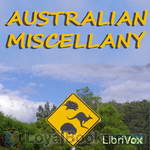 Australian Miscellany
Australian Miscellany
A collection in celebration of 2012 Year of Reading Australia. Readers chose fiction, non fiction and poetry - we only asked that the readings should have some sort of Australian hook. So they can be by an Australian author, or about Australia, or just have a prominent bit of Australianess in the plot. Failing that: even being performed by Australians will do! :D . | |
By: Mabel Osgood Wright (1859-1934) | |
|---|---|
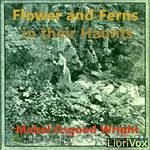 Flowers and Ferns in their Haunts
Flowers and Ferns in their Haunts
Pleasant non-fiction journey into the backwoods of the New England coastal countryside by the first president of the Connecticut Audubon Society, circa 1900. | |
By: Rev. Gerald T. Brennan (1898-1962) | |
|---|---|
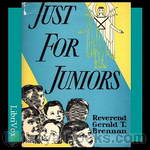 Just For Juniors: Little Talks to Little Folks
Just For Juniors: Little Talks to Little Folks
This fourth addition to Father Brennan's delightful series of "Angel Food" story books brings twenty-eight more tales which, while they excite youthful imaginations, at the same time teach the important lessons of knowing, loving and serving God, and point the way - the children's own little way to heaven. | |